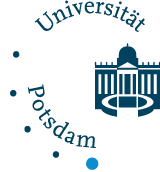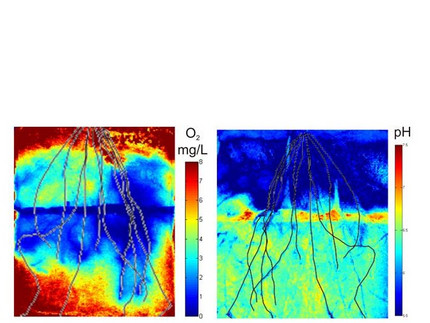Root stresses
Project description:
Root growth and root morphology are mainly determined by abiotic (pH value, water content, oxygen availability, storage density) and biotic (root-microbe interaction) environmental influences, which are also strongly interdependent. Thus, root respiration influences not only the gas balance (O2 decrease with simultaneous CO2 increase) but also the soil pH value, since CO2 is present in the aqueous soil solution as carbonic acid. However, the pH value is additionally influenced by the root exudates which are excreted by the plant in different compositions, depending on the age of the plant and the root morphology. Recently it has been proven that root exudates also change the hydraulic properties of the rhizosphere.
In my project I combine new recently developed imaging approaches to measure and understand biogeochemistry in the direct rhizosphere in situ and non-destructively. On the one hand we use optical sensors to visualize changes in pH and oxygen distribution and on the other hand we use neutron imaging techniques to quantify root structure and soil water content. Together with project partners from all over Germany we combine our imaging approaches with different analysis techniques (enzyme analysis, contact angle measurements, microbial diversity analysis) to better understand the physical chemistry in the rhizosphere.
In order to describe the pysicochemistry of the rhizosphere mechanistically, we cooperate closely with scientists from the field of modeling on an international level. The results of the imaging experiments are transformed into transient numerical models that can, for example, calculate the gas transport in the soil and the oxygen-consuming reactions in the root zone.
Contact:
- Dr. Nicole Rudolph-Mohr
- Sarah Bereswill
Cooperation partner:
- Prof. J. Bachmann (Universität Hannover, Institut für Bodenkunde)
- Dr. B. Razavi (Universität Göttingen, Abteilung Agrarpedologie)
- Prof. C. Tebbe (von Thünen-Institut, AG Mikrobielle und Molekulare Ökologie)
- Dr. N. Vasilyeva (Dokuchaev Soil Science Institute)
- Prof. U. Mayer (University of British Columbia)
- Dr. N. Kardjilov (Helmholtz-Zentrum Berlin)

